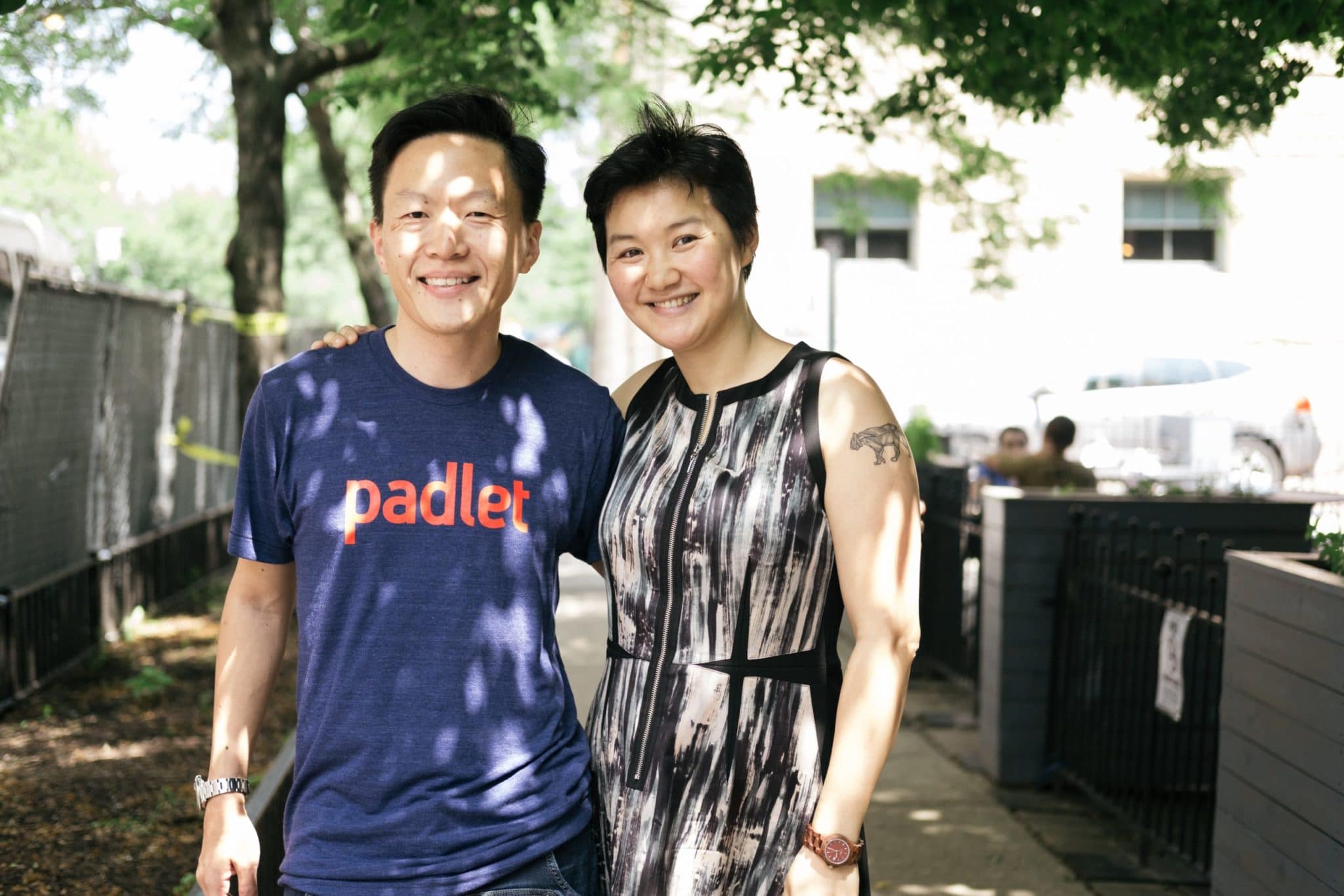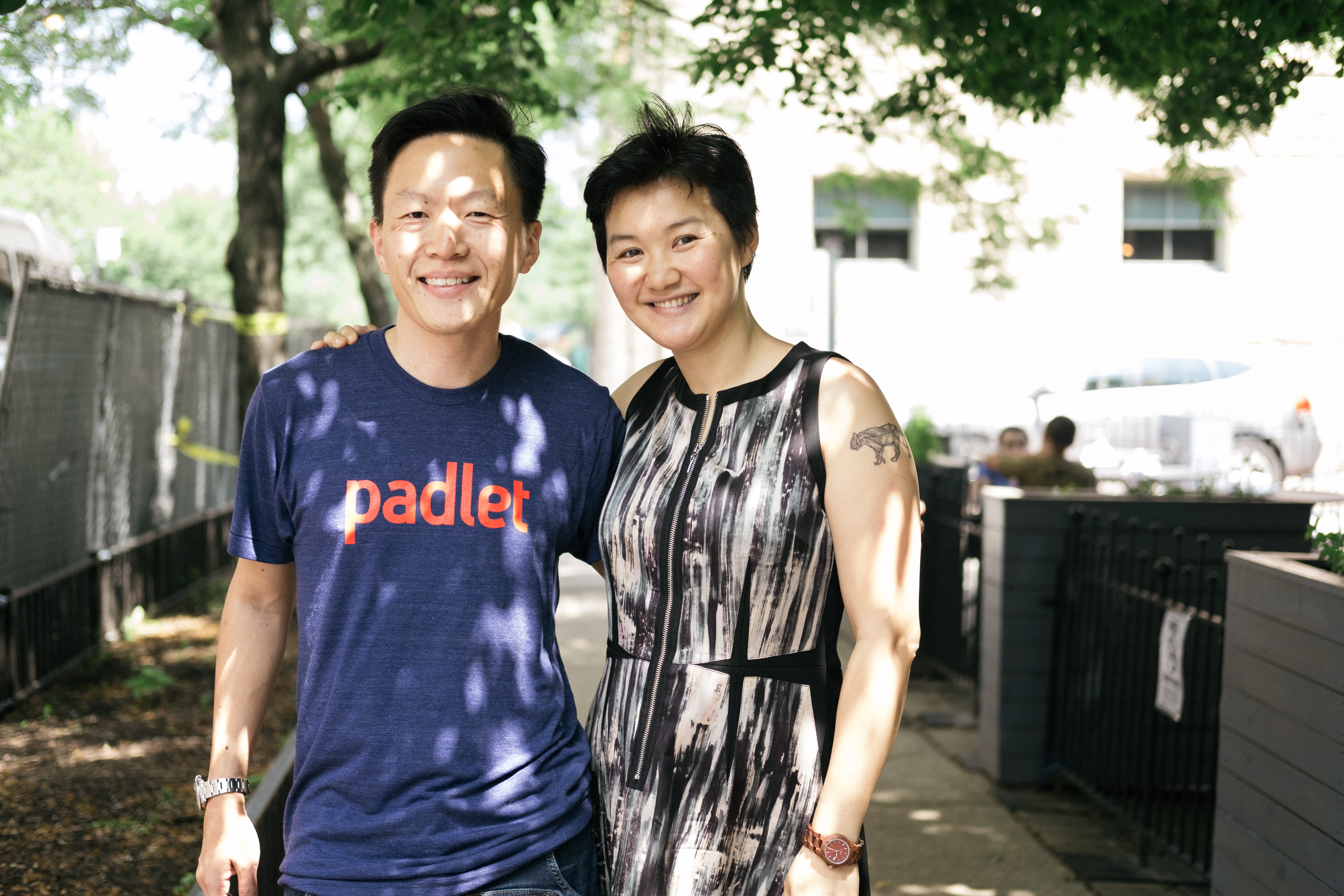Friends of Saturday Kids: Yao Yao on overcoming the odds and coding to learn
November 13, 2019

“As a female in the field of Computer Science, you have to learn how to stick up for yourself, to speak up when uncomfortable, learn to ask hard questions, trust that you’re smart and that you’ll get things done.”
Meet Yao Yao: a friend of Saturday Kids we caught up with when we took a fieldtrip to Chicago to attend ISTE . A computer scientist by training, she has since gone on to do corporate strategy, portfolio management and is currently working on Innovation Management at a maps company called HERE Technologies. She first tinkered with code at the age of 5 in China, and shares her story of how a combination of curiosity and grit enabled her to thrive and find her sweet spot as a female and immigrant in tech.

Yao Yao and Saturday Kids founder, John, in Chicago.
Hi Yao Yao! How did you get started learning to code?
“My parents were going through the period where their education was disrupted because of the cultural revolution. My Mum didn’t get a chance to start university until a couple of years after I was born, and she saw it as the only chance to go before she couldn’t go again. And so, my Dad ended up taking care of me most weekdays. At that time, he was working as a hardware and software engineer so he’d take me to his office.
We were really poor so we didn’t have many toys, and I remember just played with broken circuit boards (as toys), and different electronic components, such as transistors.
To keep me busy, he taught me programming when I was around 5. Looking through some of my journal entries, there were gems like “Today, I drew a flower using recursions”.
When I was in elementary school, he started taking me to some of the local programming competitions, and I was would walk in and be the smallest kid. That period was a great bonding time between me and my Dad.
Where I grew up, academia felt quite regimented; in contrast, coding was much more exploratory, and a fun creative outlet for me. I’m thankful for my mum for being progressive enough to look beyond the academics. She used to get called by the school to be told that I had the ability to make top 5 or top 10, and asked whether she would consider cutting down some of my extracurricular activities. My Mum would resist – saying that she would prefer for me to be ‘good enough’ and maintain my interests, making sure I stay was still curious and still exploring explore what I was interested in.
It’s a long way from China to Silicon Valley. What brought you to where you are today?
“When I was 16, we moved to Silicon Valley. My parents had always wanted me to escape the Chinese college entrance exam cycle. They were worried about the impact on my character because they saw kids hiding good study materials and plotting against each other to try to come out on top. My Dad didn’t want me to lose “my innocent smile”, and that was the reason for them bringing me out here.

Yao Yao as a child.
It’s very self-sacrificial of my Mum, because she had a great career as an accountant in China, and the minute she came to US, that license was rendered useless. She ended up going through a technical training program where she learned how to map circuit board layouts and switched careers completely.
It kinda runs in my family – with every situation, we just go and learn what we need to figure it out.
I went on to study Computer Science and finished a Masters Programme in Artificial Intelligence (AI) at MIT, before working as a programmer at IBM. After 3 years, I received full sponsorship for an MBA at Harvard. They were intrigued about my experience as an immigrant, learning programming and new languages, and having the combination of curiosity and grit to navigate different situations. That really opened many doors – I’ve gone on to do corporate strategy, portfolio management and I now work on innovation management at Here Technologies.”
What has your experience been like, as a female and immigrant in tech?
“Ever since I was a kid going to coding competitions, I was used to being the only girl everywhere and it was a character building experience – I learned not to back down. In that environment, you had to hold your own; there was no other role model around.

A snapshot from after Yao Yao moved to continue her studies in Silicon Valley.
And now as a female in the field of Computer Science, you have to learn how to stick up for yourself, to speak up when uncomfortable, learn to ask hard questions, trust that you’re smart and that you’ll get things done.”
Now that you’ve spent so many years working across different roles in tech, what have you learned from this incredible journey?
“Programming is a life skill to me: how you plan, how you use resources efficiently; especially now with the libraries and a lot of things are written for you, you need to figure out what you need and how to get it. This also means you’re not working in isolation but as a part of a vast network. These are important life skills that you develop.
Working in technology, you see how quickly tech really renders basic manual labour obsolete. Robots are going to perform many functions so much better, and the people left are the ones who are able to think – creative thinking, strategic planning, critical thinking – these are really hard to build with AI. If you’re not embracing tech, you’re doing your kids a disservice.
Programming really takes you out of that frame of rote learning and thinking. It’s more about: How do I approach the question? How do I tackle it? How do I build a plan to execute? You’re constantly improving to become more efficient, trying to leverage all the resources.
It’s a comprehensive way to develop those skills that the other activities don’t really bring altogether.
That’s why I’m so invested helping my kids build problem-solving skills, critical thinking skills, ability to be a good communicator (because in programming, you also have to comment on your code, otherwise no one else will understand and be able to use your code). I caught my son (8) teaching my daughter (6) how to program the other day, it’s really sweet. We start with simple things – little activities for them to tinker on the iPad with Scratch Junior, and if they have questions, I try to encourage them to see if they can figure things out by themselves first.
Everything’s really coming into the package when you learn programming – there’s planning, problem solving, finding resources, communication, and efficiency.

Yao Yao and two of her kids!
It’s a fun activity to do with your kids too – just like me and my Dad, and it holds such special memories for me.”
. . .
Yao Yao’s story reminds us of why we do what we do – the lasting impact of “aha” moments, and how transformative a superpower like coding can be, when you apply it with a little bit of creativity, inventiveness, and resourcefulness. Thanks Yao Yao for the conversation – through Saturday Kids, we hope to inspire many more kids to code to learn and open up worlds of possibilities for them in the process.